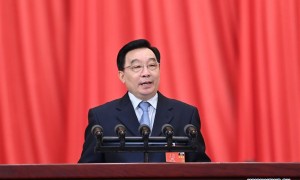European and US negotiators have expressed cautious optimism that a transatlantic free trade agreement could be concluded by the end of the year.
Supporters of a Transatlantic Trade and Investment Partnership between the U.S. and the European Union claim it would boost each economy by about 100 billion dollars.
Negotiators from both sides of the Atlantic wrapped up the latest round of talks in Brussels Friday saying most outstanding issues could be resolved by July.
"We now have proposed texts in the vast majority of the negotiating areas and in many cases, we are already removing brackets and agreeing on wording. In short, we are well into the nitty-gritty of negotiating this agreement," said Dan Mullaney, chief US negotiator.
The aim is to conclude an agreement before the U.S. presidential election this year that will usher in a new leader who may have different priorities.
"We are ready to seek to conclude negotiations in 2016, provided that the substance is right so we must ensure that we pick up the pace and give the necessary impulse to get this agreement right," said Ignacio Garcia Bercero, chief EU negotiator.
The transatlantic trade deal has plenty of opponents on both sides of the Atlantic.
Here in Europe critics claim the free trade and investment deal would undermine the ability of E.U. member states to set their own environmental and health policies.
Others claim it won't make much difference given that very few trade barriers remain between the U.S. and Europe anyway.
But the deal known as TTIP is designed to go beyond traditional tariff cutting, seeking agreements on regulations and rules that could provide a global standard.
In the latest round of talks negotiators discussed streamlining regulation in areas ranging from the automotive and pharmaceuticals sectors to cosmetics, engineering and Information Technology.







